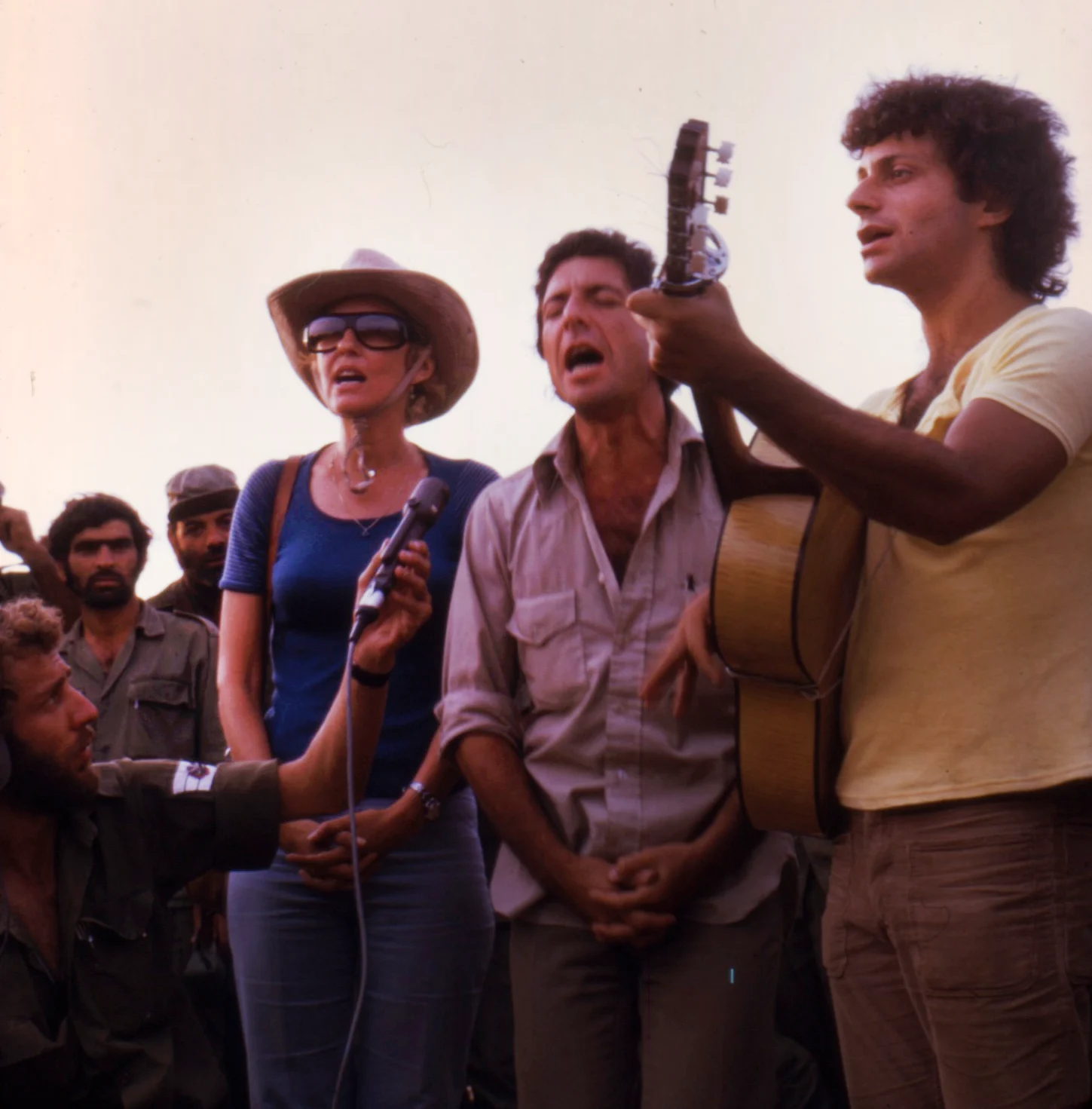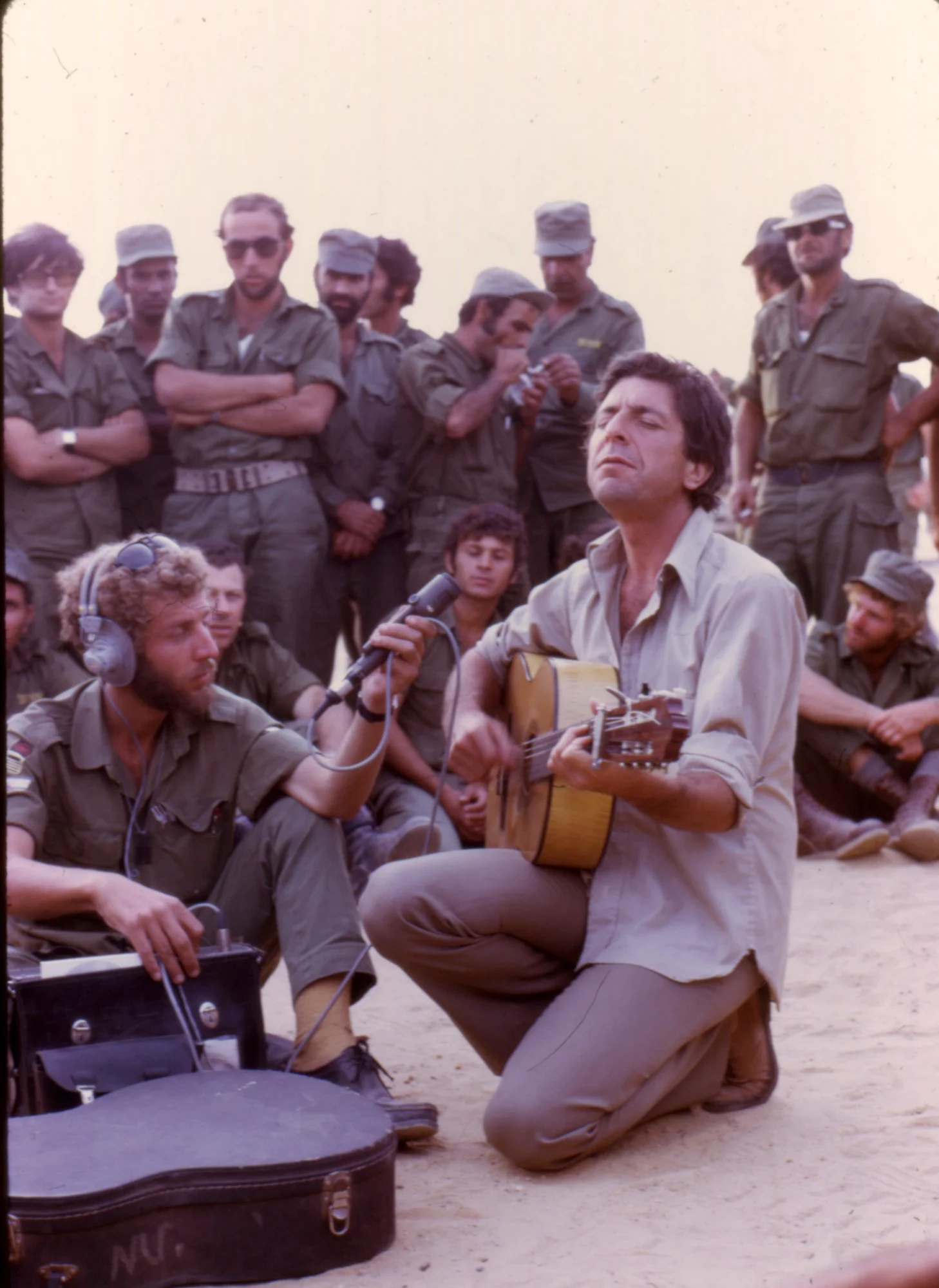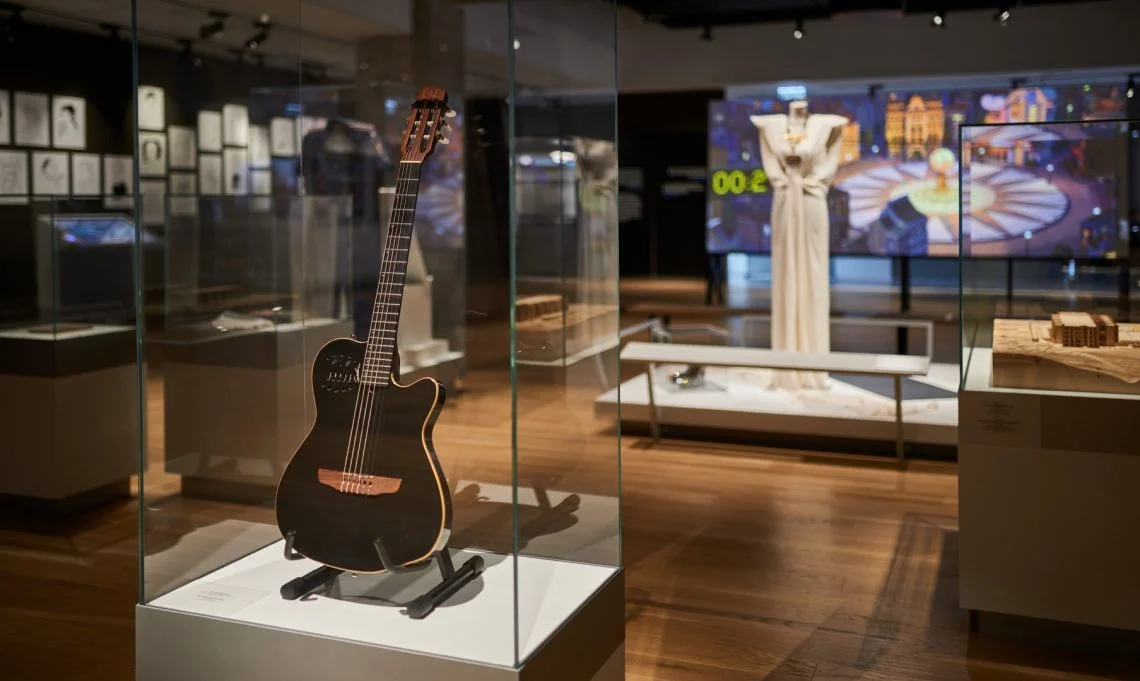Exhibitions
Search Results
Leonard Cohen in Israel
Video Art Display With Rare Footage

*On display until December 30, 2023*
Legendary musician Leonard Cohen’s relationship with Israel was complex. Cohen, raised observant, was a devout Zen-Buddhist for thirty years, though he famously maintained his connection to Judaism throughout his life. His soul-searching – grappling with his own heritage – intermingled with Israel’s story. From his first trip to Israel in 1960 as an unknown writer, when he met renowned Israeli poet Natan Zach at the iconic Café Casit in Tel Aviv, to two concerts in 1972 as a musical superstar – Cohen became one of Israel’s favorite rock icons. At his first concert here, a fight broke between audience members and security at the Yad Eliyahu sports arena, when Cohen asked the audience to move closer to the stage. At his second concert, Cohen famously did not feel his performance was living up to his expectations. He stopped playing in the middle of a song, and retreated to his dressing room to meditate. Half an hour later, he returned to the stage and brought his audience to tears. For Cohen, the event was traumatic – for those who were there, unforgettable.
Video Art Display With Rare Footage
*On display until December 30, 2023*
Legendary musician Leonard Cohen’s relationship with Israel was complex. Cohen, raised observant, was a devout Zen-Buddhist for thirty years, though he famously maintained his connection to Judaism throughout his life. His soul-searching – grappling with his own heritage – intermingled with Israel’s story. From his first trip to Israel in 1960 as an unknown writer, when he met renowned Israeli poet Natan Zach at the iconic Café Casit in Tel Aviv, to two concerts in 1972 as a musical superstar – Cohen became one of Israel’s favorite rock icons. At his first concert here, a fight broke between audience members and security at the Yad Eliyahu sports arena, when Cohen asked the audience to move closer to the stage. At his second concert, Cohen famously did not feel his performance was living up to his expectations. He stopped playing in the middle of a song, and retreated to his dressing room to meditate. Half an hour later, he returned to the stage and brought his audience to tears. For Cohen, the event was traumatic – for those who were there, unforgettable.
The Yom Kippur War

When the Yom Kippur War broke out, Cohen was moved by the threat against Israel and arrived to help take part in the war effort. He was on his way to volunteer on a kibbutz when he had a chance meeting with Israeli singer Oshik Levi at the California Café. Levi was organizing musicians to perform for soldiers on the front lines and persuaded Cohen to join. Cohen, for his part, thought his songs were not uplifting enough for the beleaguered troops, but he went anyway. An iconic photograph shows Cohen with then General Ariel Sharon and Israeli rocker Matti Caspi in the Sinai. The war and the faces of the exhausted soldiers affected Cohen deeply and inspired him to write on of his most famous songs, Lover Lover Lover – whose original version opens with the words “I saw my brothers fighting in the desert”. Cohen performed in Israel again in 1985, and in 2009 for his final concert in the country, at which he spread his hands over the audience, giving them the Priestly Blessing, saying: “I don’t know when we will meet again, but I promise to give you all that I have tonight.”
The Yom Kippur War
When the Yom Kippur War broke out, Cohen was moved by the threat against Israel and arrived to help take part in the war effort. He was on his way to volunteer on a kibbutz when he had a chance meeting with Israeli singer Oshik Levi at the California Café. Levi was organizing musicians to perform for soldiers on the front lines and persuaded Cohen to join. Cohen, for his part, thought his songs were not uplifting enough for the beleaguered troops, but he went anyway. An iconic photograph shows Cohen with then General Ariel Sharon and Israeli rocker Matti Caspi in the Sinai. The war and the faces of the exhausted soldiers affected Cohen deeply and inspired him to write on of his most famous songs, Lover Lover Lover – whose original version opens with the words “I saw my brothers fighting in the desert”. Cohen performed in Israel again in 1985, and in 2009 for his final concert in the country, at which he spread his hands over the audience, giving them the Priestly Blessing, saying: “I don’t know when we will meet again, but I promise to give you all that I have tonight.”
More Images
Credits
Supported by the Government of Canada |
Thank you to the Embassy of Canada
Producer and director |
Robert de Young
Editor |
Eric Basset
Curator |
Asaf Galay
Chief curator |
Dr. Orit Shaham Gover
Producer |
Michal Houminer
Translation |
Sivan Raveh
Sound mix |
Ronen Nagel
Color |
RGB Post Productions
Graphics |
Ayala Sharot
Photos courtesy |
Anjani Thomas Collection, Isaac Shokal, Doron Yakobi, Uri Dan – Farkash Gallery
Archival footage courtesy |
Sony Music Entertainment, inc
Concert footage courtesy |
Unified Heart Productions, LLC and Sony Music Entertainment, inc
Produced by |
Unified Heart Productions, LLC
© 2020, All Rights Reserved |
